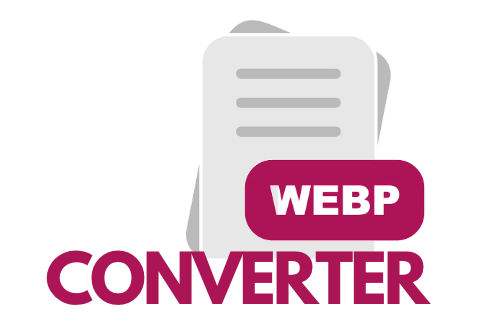How to Convert Image To WEBP Easily
Converting your images to the modern and efficient WEBP format can significantly reduce file sizes without compromising quality. Follow simple steps to convert your images to WEBP.
- Step 1: Choose Your Image
- Select the image you want to convert from your device. Whether it's a JPEG, PNG, or GIF file, our converter tool supports various image formats for converting.
- Step 2: Upload Your Image
- Once you've chosen the image, upload your selected image. Our tool will promptly process the file, preparing it for conversion.
- Step 3: Select Format
- choose WEBP as the desired output format. You may also have additional options to adjust compression settings or other parameters based on your preferences.
- Step 4: Download Your Image
- You'll be provided with a link to download your newly converted, Click on the download button, and your optimized image will be ready for use.
- Step 5: Enjoy Faster Loading Times
- By converting your images to WEBP, you're not only saving storage space but also improving website performance. WEBP images typically load faster, enhancing user experience and SEO rankings.
Benefits Of Converting Images To WEBP
Optimize your web content for faster loading times, better user experiences, and improved overall performance.
- 01. Improved Compression Efficiency
- Utilizes advanced compression algorithms, resulting in significantly smaller file sizes compared to other image formats like JPEG or PNG, without compromising visual quality.
- 02. SEO Benefits:
- Faster loading times contribute to better search engine rankings, as page speed is a crucial factor in SEO performance. By using WEBP images, websites can potentially improve their visibility in search engine results.
- 03. Lossless and Lossy Compression
- : WEBP supports both lossless and lossy compression, allowing users to choose between preserving every detail (lossless) or sacrificing minimal quality for further file size reduction (lossy).
- 04. Alpha Channel Support
- WEBP supports alpha transparency, making it ideal for images with transparent backgrounds, such as logos, icons, and illustrations.
- 05. Bandwidth Savings
- Reduced file sizes mean lower bandwidth consumption for both website owners and visitors, particularly beneficial for users with limited data plans or slower internet connections.
- 06. Conversion Flexibility
- With online converter tool, users can easily convert existing images to WEBP format, enabling seamless integration into their websites or online projects.
FAQs
What is WEBP?
it is a modern image format developed by Google that employs advanced compression techniques to produce smaller file sizes compared to traditional formats like JPEG and PNG, while maintaining high-quality visuals.
Why should I convert images to WEBP?
It caan significantly reduce file sizes, leading to faster website loading times, improved user experience, and potential SEO benefits due to improved page speed.
How do I convert images to WEBP?
You can convert images to WEBP using our Converter, Simply upload your image, select WEBP as the output format.
Can I convert any image format to WEBP?
Yes, most common image formats such as JPEG, PNG, and GIF can be converted to WEBP format.
Does converting images to WEBP affect image quality?
it supports both lossy and lossless compression, allowing users to balance between file size reduction and image quality preservation.
Are WEBP images supported by all web browsers?
Most modern web browsers, including Google Chrome, Mozilla Firefox, and Microsoft Edge, support WEBP images.
Can I convert animated images to WEBP?
Yes, WEBP supports animated images, making it a suitable replacement for animated GIFs.
Do WEBP images support transparency?
Yes, it support alpha transparency, allowing for images with transparent backgrounds.
Is there a limit to the file size or resolution when converting to WEBP?
No, there is no any limit you can upload any image that you want convert in our Snapsave Tool.
